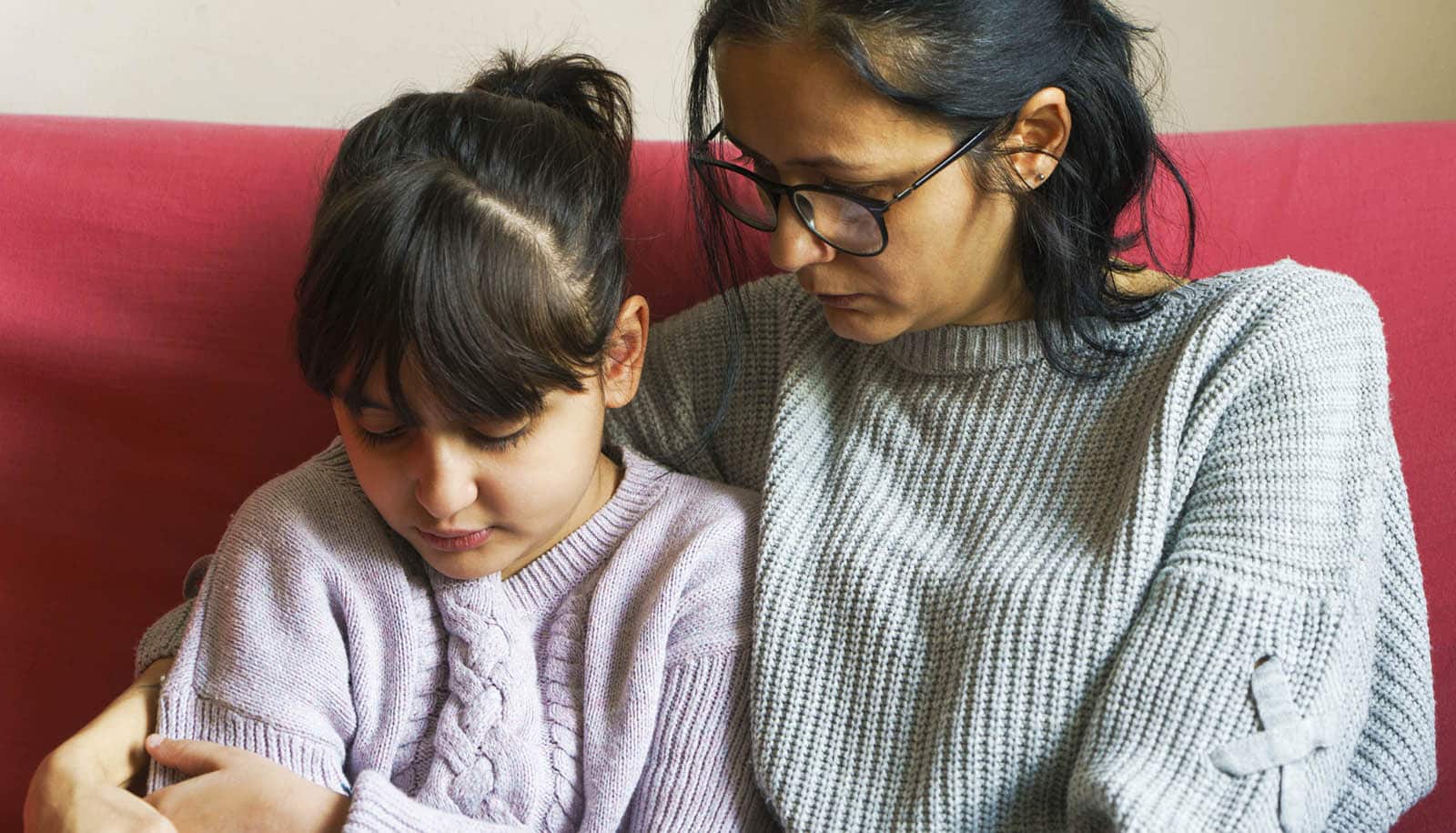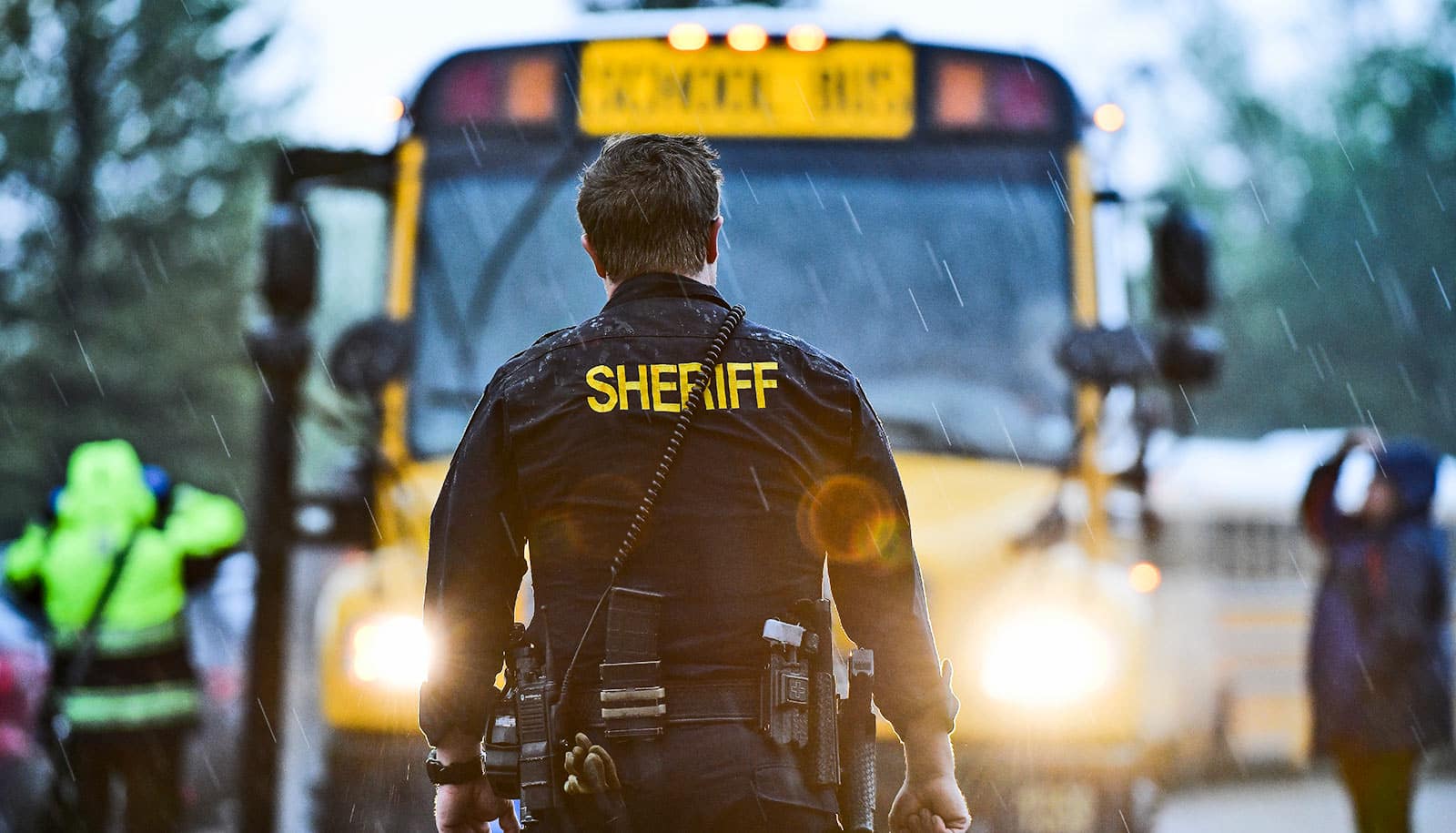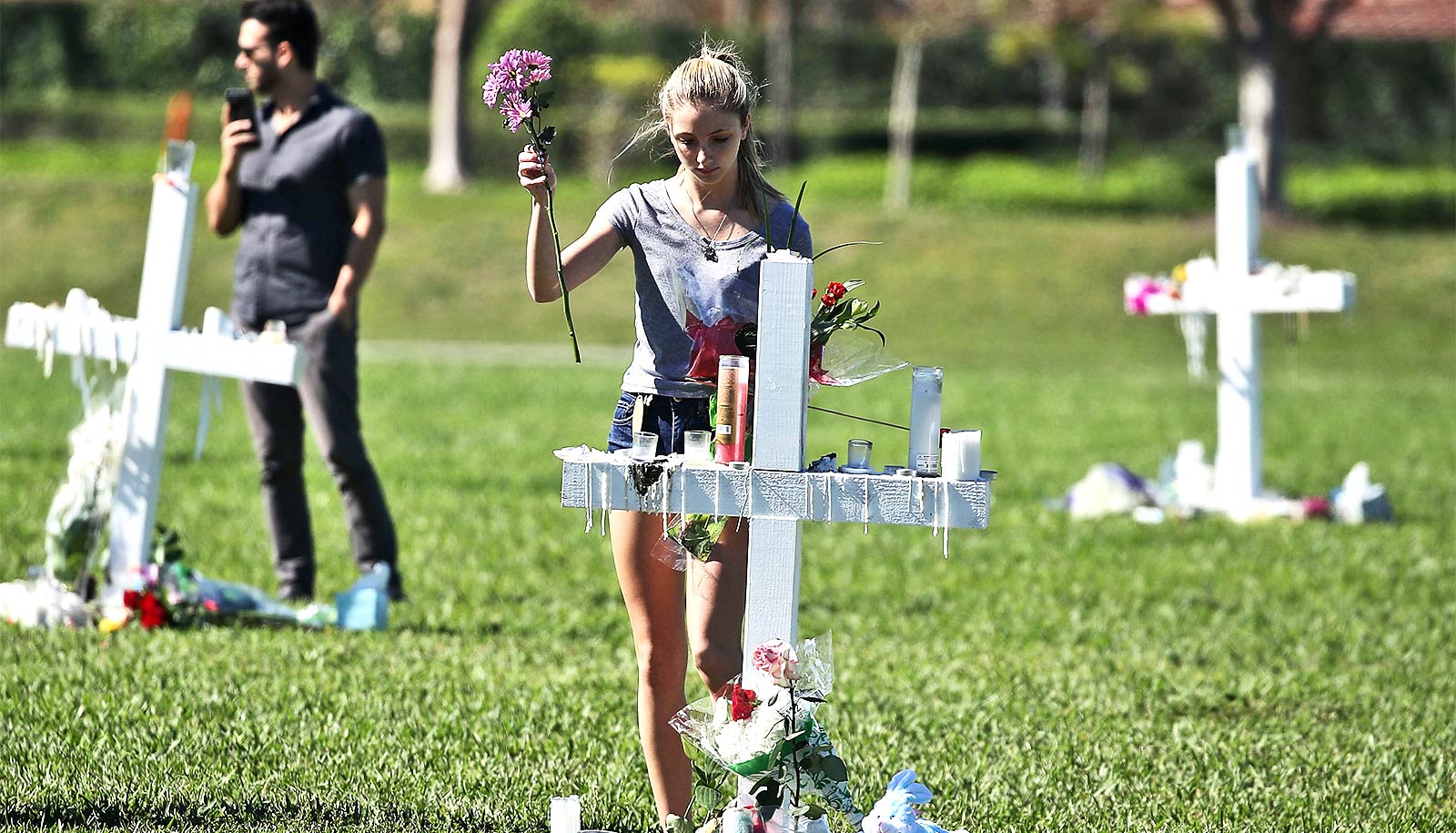Social work professor Tracey Marchese has practical advice on how speaking to children about school shootings and violence.
“Telling the child what the adults think they need to know can actually cause the child more anxiety.”
Marchese, professor practice in the School of Social Work in Syracuse University’s Falk College, studies trauma, PTSD, mental health, and mind-body wellness.
She answers three questions below with advice on best ways to discuss traumatic events:
How should I approach the topic of a school shooting with my child or teen?
Children/adolescents may react differently to the news of a school shooting depending upon their age and previous exposure to news of school shootings. Younger children (those younger than about the age of 7) may not have as much awareness or understanding about the impact of a school shooting. Children that are about the age of 8 and older would benefit from having a discussion about it, especially if there is large-scale news coverage and the child will most likely hear about it in school. Adolescents may be more likely to want to talk about it more in depth.
You may simply ask the child if they’ve heard about it and take it from there. After initiating the discussion, adults should take on more of a listening role to see what the child needs instead of talking to the child about what they think the child needs to know. Addressing the needs that the child expresses—whether for more information, comfort, safety planning—will lead to more positive outcomes. Telling the child what the adults think they need to know can actually cause the child more anxiety.
What should parents and caregivers keep in mind in how they talk about the event?
Adults need to be mindful about how they address their children’s safety concerns. We do not want to negate the child’s fears—telling the child that they shouldn’t feel scared will only serve to shut down communication. It is not appropriate to tell the child that they will never experience a school shooting because we do not know that. At the same time, we want to help them to feel safe enough so that they do not become fearful of going to school. It is okay to share that you may be feeling scared, too, and that you can work together on creating a plan to feel safer. Taking a proactive stance will help the child feel more in control.
Do you have any other advice to offer?
One of the most important things to address before speaking to children is for the adults to first address their own feelings/fears/concerns. If the adult is visibly anxious or even just feeling uneasy, the child will pick up on that, regardless of what the adult tells them. Concerns can be addressed in a number of ways: getting support from friends and family, becoming educated about their local school district’s safety protocols, engaging in relaxation techniques to help regulate their feelings, and/or seeking help from a mental health professional if they are having ongoing trouble managing their feelings/concerns.
Source: Syracuse University



